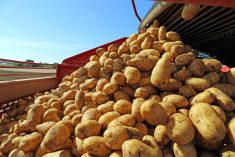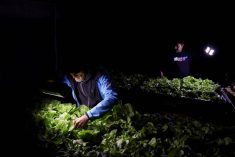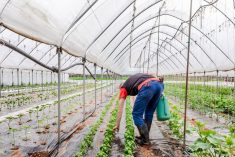Paris | Reuters — French agricultural co-operative Limagrain has offered to buy the 28.78 per cent of Vilmorin it does not already own in a deal that values one of the world’s biggest seed suppliers at 1.43 billion euros (C$2.13 billion).
Limagrain said on Friday it was offering 62.60 euros per Vilmorin share, a premium of 45.4 per cent to the last closing price and a level not seen in almost two years. Vilmorin’s board said in would recommend the offer to its shareholders.
After falling sharply at the start of Russia’s invasion of major grain exporter Ukraine, Vilmorin’s shares have yet to regain pre-war levels.
Read Also

Pea, lentil outlooks have some positive signals – Penner
As pulse growers consider what to plant this spring, Chuck Penner of Leftfield Commodities Research said there is some optimism in the Canadian pulse market. Penner gave a presentation at the Saskatchewan Pulse Growers meeting in Swift Current on Feb. 4.
Limagrain said taking Vilmorin private would make it easier to make long-term investment decisions in a highly competitive industry and an uncertain economic climate.
The low volume of shares traded, and the fact Vilmorin had not raised capital on the market since 2010, also showed limited value of the listing, Limagrain added.
Vilmorin, whose history stretches back to an 18th-century shop in Paris, has been listed in Paris since 1993. The company bills itself as the world’s largest player in vegetable seeds; its U.S. arm, Vilmorin-Mikado USA, also handles the company’s vegetable seed sales in Canada.
Vilmorin competes in seeds with likes of Bayer and Syngenta, whose owner Sinochem wants to list the Swiss-based firm in Shanghai.
The share offer, subject to regulatory approval, is expected to run between late June and mid-July, and will be financed by bank debt, Limagrain said.
Limagrain is based in central France and has activities including bakery goods. Its Canadian holdings include a 50 per cent stake in corn and soybean seed firm Pride Seeds.
Reporting its third-quarter sales on Friday, Vilmorin raised its target for full-year sales growth, though it said its activity in Russia remained hampered by logistical difficulties and sales in Ukraine hurt by a decline in plantings.
— Reporting for Reuters by Gus Trompiz in Paris.
















